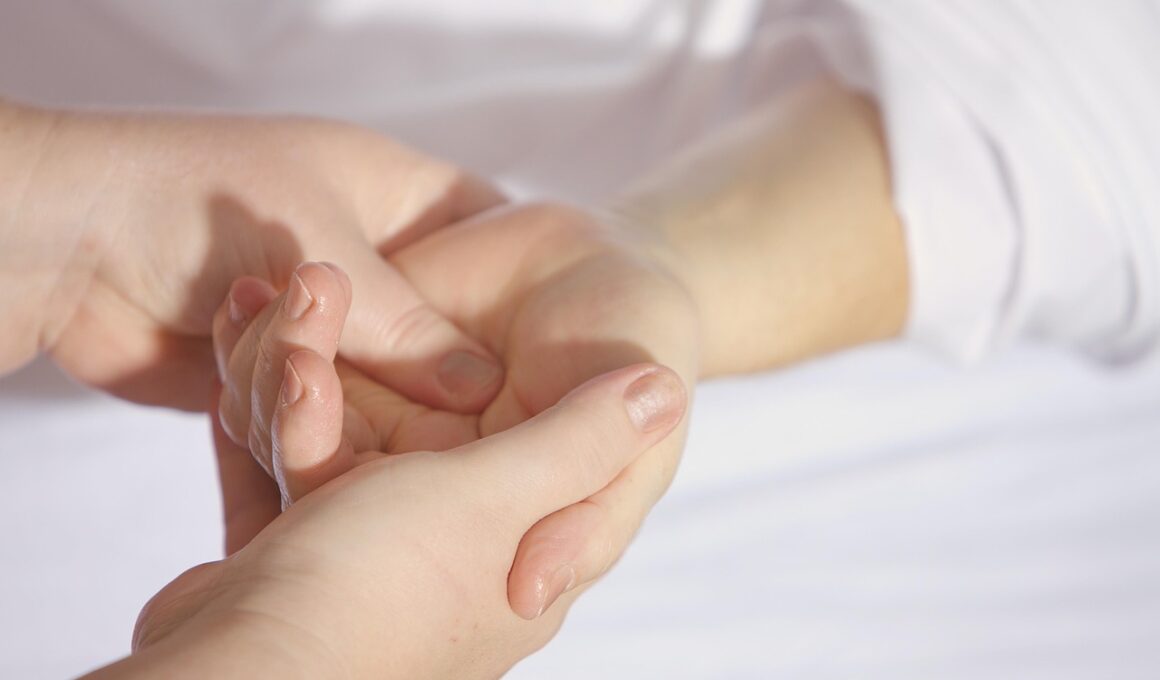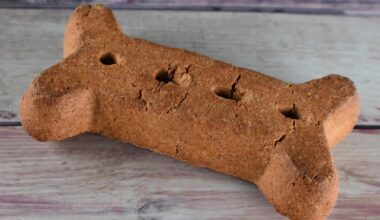How to Comfort Your Dog During Parvovirus Recovery
Parvovirus is a serious viral infection that affects dogs, particularly puppies, and can lead to severe symptoms. If your dog is recovering from parvovirus, comfort is crucial for their healing process. Begin by creating a safe and quiet space where they can rest without disturbance. This space should be cozy and free of stressors. Monitor their condition closely; signs of discomfort include whining, pacing, or refusal to eat. A soft bed and warm blankets can make a significant difference, ensuring they feel secure and loved. Access to fresh water is essential because dehydration is a risk during recovery. Encourage your dog to sip water regularly. You can place a few treats or favorite toys near their water bowl to make drinking more appealing. Additionally, your presence can be very soothing for your pet during this time of illness and recovery. Use calming words and gentle petting to reassure them. These actions will help alleviate anxiety and speed up the recovery process, allowing them to regain their strength. Remember, patience and care are paramount during every stage of healing.
In addition to providing a tranquil environment, it’s essential to keep your dog’s nutrition in mind during parvovirus recovery. Eating small, frequent meals is beneficial because large meals can lead to discomfort. Consult your veterinarian for dietary guidelines tailored to your dog’s needs at this stage. They may recommend highly digestible food or specialized diets for recovery. Gradually reintroducing food can help; mixing bland options with preferred flavors may entice your pet to eat. Monitor their appetite closely; a lack of interest in food may indicate underlying problems during recovery. Using a slightly raised bowl can also assist dogs with gastrointestinal issues during this time. Maintaining a positive atmosphere is essential; avoid forcing food if your dog refuses to eat. Instead, try offering small pieces or warming the food slightly to enhance its aroma. Stay attentive to your dog’s overall demeanor. If they show signs of distress, consult your veterinarian immediately. Remember to keep water nearby at all times; hydration is just as important as nutrition. Your care and understanding can significantly contribute to their physical and emotional recovery, fostering a healthy healing process.
Hydration and Comfort Techniques
As parvovirus can lead to severe dehydration, keeping your dog hydrated is paramount for recovery success. Provide clean, fresh water frequently to encourage your dog to drink. You might even consider using an electrolyte solution suggested by your veterinarian to further assist their hydration levels. If your dog is reluctant to drink, there are techniques you can employ to encourage them. Try offering ice cubes or ice chips, as some dogs find these more appealing. You can also offer flavored water by adding low-sodium broth or pedialyte to their water bowl, which can stimulate their thirst. Drinking from a syringe (without a needle) or a turkey baster may provide an alternative if your dog refuses the regular bowl. Monitor the color of their urine and frequency to assess their hydration status. Proper rest is vital; ensure your dog has a comfortable, cozy space, further enhanced by gentle petting and soothing sounds, promoting relaxation. This can greatly ease their anxiety during this difficult time, while your nurturing presence and care support their ongoing needs, ensuring a smoother recovery process for your best friend.
Along with hydration and nutrition, mental stimulation plays an essential role in your dog’s recovery from parvovirus. While activity levels may be limited, engaging in gentle mental exercises can help maintain your dog’s spirits. Puzzle toys filled with treats or hidden rewards can occupy their mind, providing them with a positive distraction. You might also explore obedience training exercises that are simple and intuitive, like sit or lay down, using treats as positive reinforcement. Calming music or sounds can be soothing, creating a peaceful atmosphere. Guided interaction, including low-intensity games like hide-and-seek with toys, can be beneficial too, stimulating both mental engagement and companionship. It’s imperative to keep sessions short to prevent fatigue. You should also remain alert to your dog’s energy levels, adjusting the activities based on how they feel. Make sure their comfort remains the priority. Anything from petting to gentle play can yield positive results, creating a loving environment that not only makes them feel secure but also encourages them to heal faster, enabling their return to normalcy with each passing day.
Rest and Recovery
Rest is a key component of recovery post-parvovirus, as it allows your dog’s body to heal and regain strength. Creating a comfortable resting area is essential. Consider thick, soft bedding in a quiet room, free from disturbances. Personalize the space with your dog’s bedding and favorite toys, as familiar items can provide reassurance. Limit activity and excitement; having a calm environment will assist in recovery. Encourage your dog to rest frequently by providing ample opportunities for quiet time. Use a gentle voice, and ensure people and pets in the household understand the importance of keeping noise levels down. This peaceful atmosphere helps to reduce your dog’s anxiety and promotes comfort. Frequent bathroom breaks are essential; ensure they’re manageable to avoid accidents. When they are getting enough rest, they will naturally exhibit signs of improved health. Remain vigilant for changes in their behavior and condition, and don’t hesitate to contact your veterinarian for guidance if needed. Providing consistent love, gentle encouragement, and a serene environment fosters emotional and physical recovery, reinforcing your bond during this vulnerable time.
Something crucial during recovery is the need for monitoring your dog’s symptoms, as parvovirus symptoms can vary widely and may indicate underlying issues. Track signs like lethargy, vomiting, or blood in feces, and be vigilant about changes in their appetite or energy levels. Keep a journal of observations to share with your veterinarian during follow-up visits. Examining their behavior can also help you identify if they are in discomfort or distress, aiding prompt intervention if necessary. Staying on top of their progress is vital for ensuring their healing journey remains on track and free from complications. Additionally, maintain scheduled check-ups to evaluate their health as they recover; this is essential for addressing potential lingering effects of the virus, such as gastrointestinal issues. Consistent care and support from you will create a compassionate environment for your dog. Knowing that you are actively participating in their recovery journey will help your dog feel secure and loved. Remember to remain patient; recovery can take time, but your attentive care and nurturing support will encourage them every step of the way.
Consulting a Veterinarian
As always, consulting your veterinarian is essential during your dog’s recovery from parvovirus. Your vet’s guidance is invaluable in managing your dog’s health, addressing symptoms proactively, and ensuring the best healing environment. They are equipped to recommend specific treatments or medications that can ease discomfort and aid recovery. Routine follow-ups will help assess your dog’s progress and make adjustments to the care plan as necessary. Communicate any concerns you notice and share your observations with your veterinarian so they can provide the most effective care. It’s vital to adhere to the medication schedule, if prescribed, to ensure optimal recovery. Behavioral concerns can also be discussed with your vet. They can offer insights into how to cope with any anxiety or stress your dog may exhibit during this healing time. Your participation in your dog’s recovery journey reflects your commitment and love. It’s a partnership centered around helping your dog return to their happy, healthy self. Your veterinarian will be your ally along the way, providing vital guidance and support to navigate the recovery process together.


